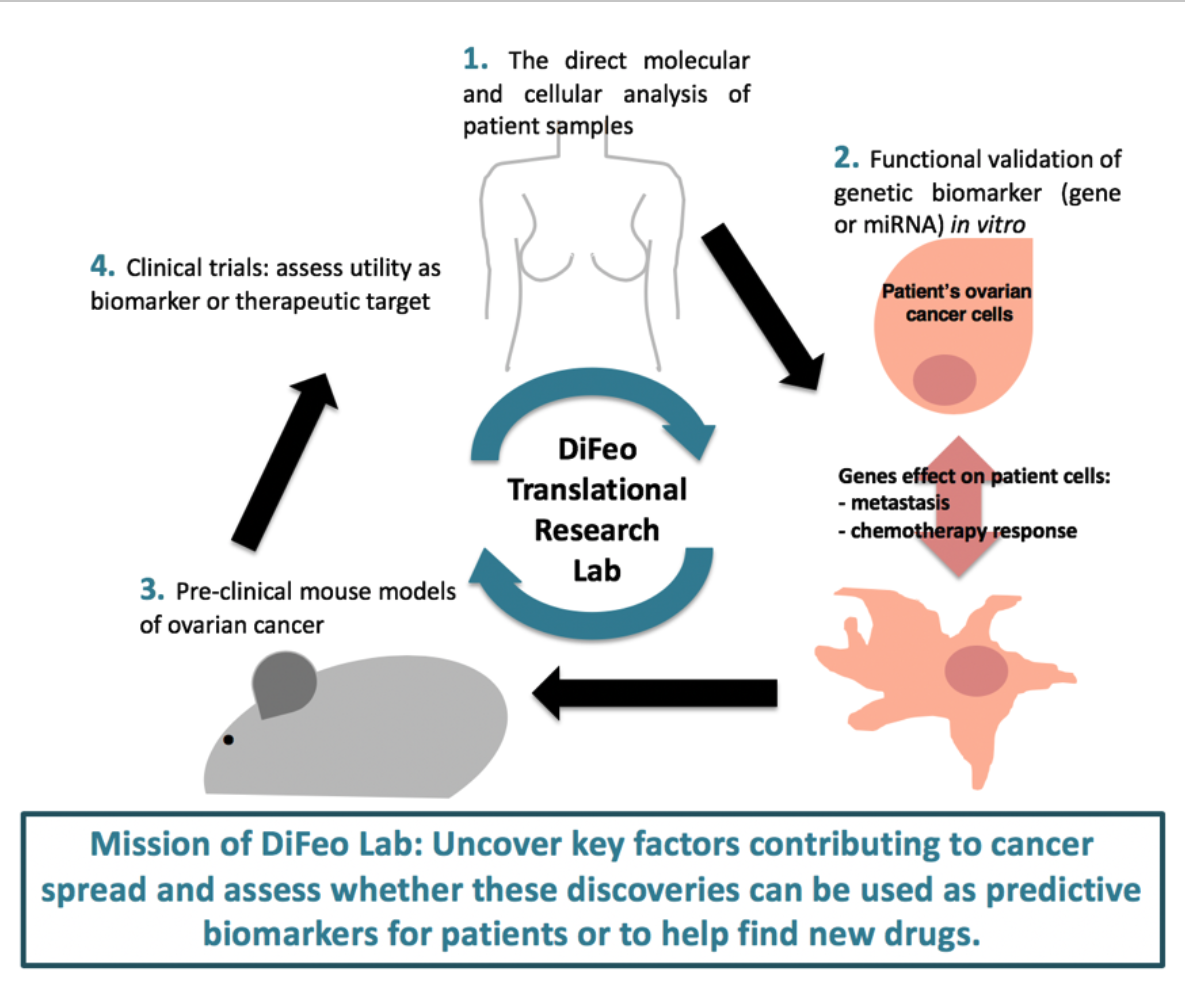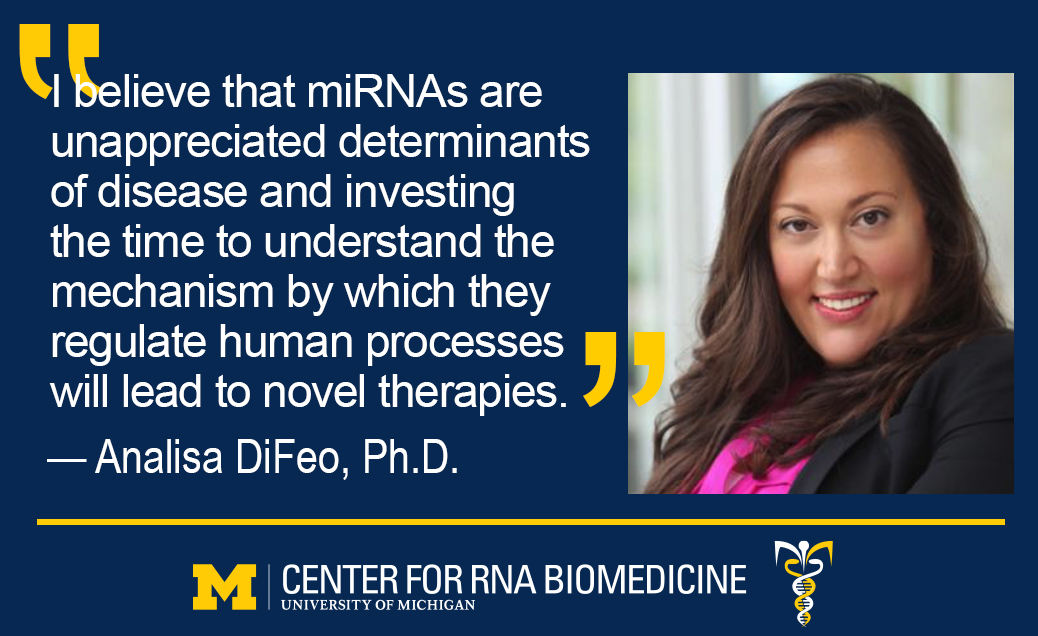RNA Faculty Spotlight – Analisa DiFeo, Pathology and Ob/Gyn
Analisa DiFeo, Ph.D.
Associate Professor
Pathology and Ob/Gyn
Michigan Medicine
Twitter
Faculty page
DiFeo Lab
LinkedIn
Google Scholar
Research Interests:
Using a combination of in vitro and in vivo approaches, my lab hopes to better understand the mechanism by which both microRNA’s and the genes they regulate are involved in ovarian tumor biology at the cellular level as well as in disease development and progression.

-
- Who/what brought you to science?
A combination of scientific curiosity and personal experiences. Curiosity has always defined me. My earliest memories as child are my asking “why?” I vividly remember the day my sister who was then 3.5 years older than me, came home from the hospital after her sixth surgery for her cleft lip. All I remember myself thinking was: “Why does my sister have this? Why don’t I have it? How did it happen?” This was probably my first scientific question at the age of four.
-
- What brought you to the University of Michigan?
I have always loved to collaborate with people and what really impressed me about University of Michigan was that you could find an expert in almost any field on campus. In order to make transformative discoveries we need to work as a team. I was very eager to come here and collaborate with intelligent and passionate scientists who want to make an impact.
-
- What advice would you give to students who’d like to get more involved in research?
Find your passion because when your heart leads, you do your best work. Never hesitate to send an email, ask a question or inquire about a potential position in someone’s lab because as long as you are genuine you will get a genuine response. As a PI, I am always looking for trainees who are truly passionate about science and have that burning desire to tackle the tough problems.
- Are there any opportunities for students to engage in your projects, currently or in the future? Yes.
- What skills would they need?
Students who enter my lab need to be motivated, eager to learn, have general wet lab skills, and potentially have some tissue culture or mouse experience. However, if someone does not have these skills but have a genuine passion, I have a wonderful and patient team that is always eager to teach.
- What skills would they need?
-
- What could they expect to learn?
Work performed in our lab spans a wide spectrum of areas ranging from bacteria and mice, to humans. Students will learn about molecular biology, mouse/human genetics, cancer biology, mouse models, signaling pathways, miRNA regulation, and development patient-derived models.
- What could they expect to learn?
- What profession other than your own would you enjoy, or what is your favorite hobby?
If I were not a biomedical scientist, I would have loved to be a detective or a professional basketball player. Surprisingly, I was going to play college basketball but decided to major in biochemistry!

